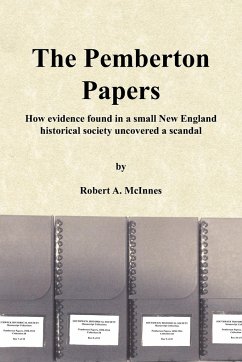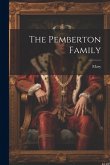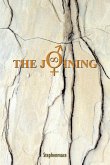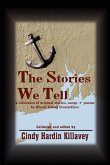When Charles Stratham, a retired pharmaceutical chemist, decided to delve into genealogy to fill his free time, he and his wife discover their ancestors had more to do with each other than they ever imagined. This story is not only about life in a small town in southeastern Connecticut. It also provides real insights into the operations of a small historical society. New England is dotted with lots of historical sites, museums, and historical societies. Have you ever wondered what it's like working in a place like that? Read the Pemberton Papers and gain an insider's view of public history. Based on a combination of factual and fictitious events in southeastern Connecticut between 2002 and 2004, archivist Jim Cameron leads the Strathams through the maze of historical documents that reveal a scandalous episode in their genealogies. In addition, the sequence of events illustrates how historical societies fit in their communities-some of which are fun and quaint, while others involve important legal, ethical and business issues. The Pemberton Papers is a novella with an appendix (the collection guide to the Pemberton Papers) which was deposited in the Southwick Historical Society in 1996. Katherine Ann Tennant Pemberton was a social activist/suffragette/prohibitionist in the early twentieth century, whose modus operandi for achieving her objectives was more radical than those of her peers. Then, in 1996 one of Katherine's great-grand-daughters found her papers in a steamer trunk in the attic of the family home and donated the collection to the local historical society (with no restrictions on access). As fate would have it, another great-grand-daughter and her husband later decided they wanted to pursue genealogy as a hobby. You'll never guess what they found.
Hinweis: Dieser Artikel kann nur an eine deutsche Lieferadresse ausgeliefert werden.
Hinweis: Dieser Artikel kann nur an eine deutsche Lieferadresse ausgeliefert werden.








